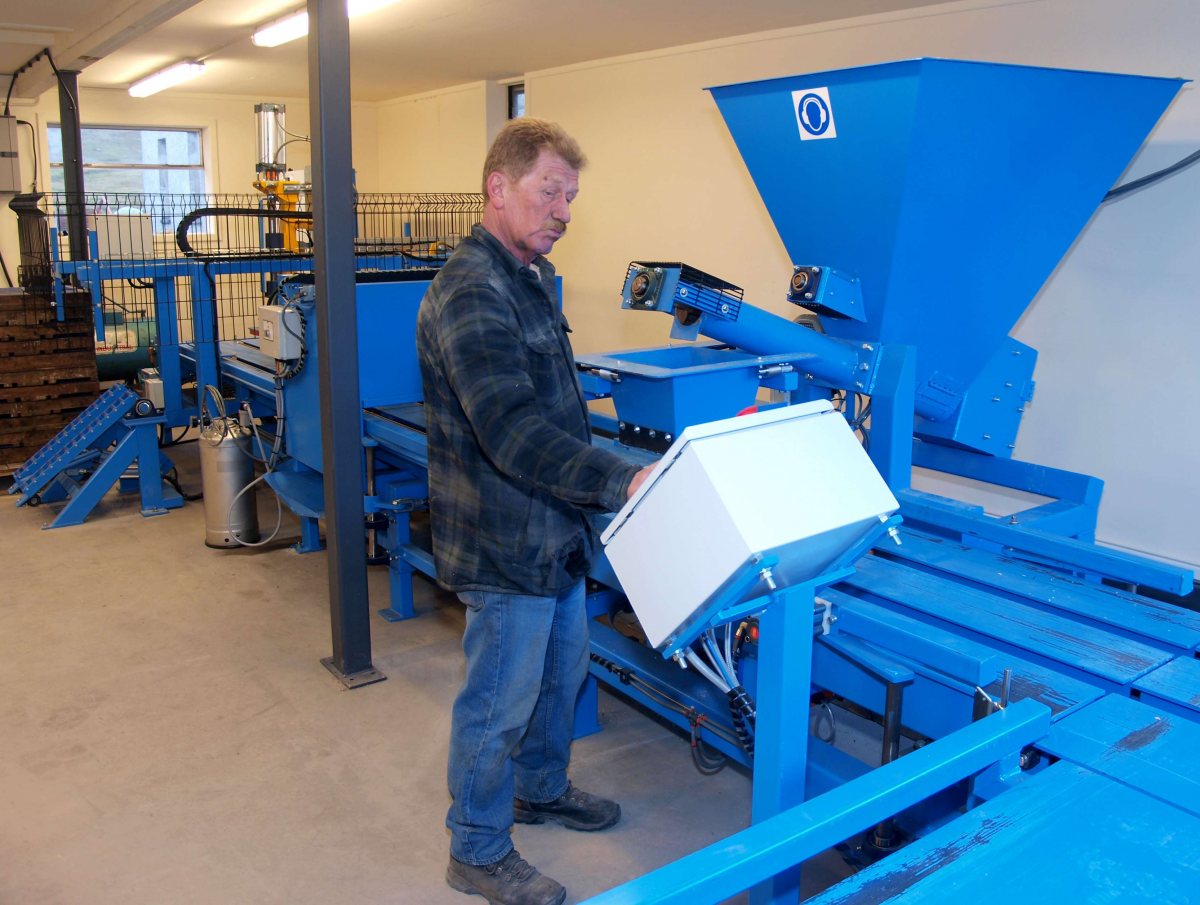Enviroglass praised by Scottish government

A Shetland project to recycle waste glass into building materials has been hailed as a beacon of excellence by the Scottish government.
Cunningsburgh-based firm Enviroglass was praised at the Scottish Parliament last week, when delegates at a cross party group on architecture and the built environment heard how the small company uses waste glass to produce high quality products.
The special session was scheduled to show how using locally sourced building materials is not only good for the environment, but can create skilled jobs and support regeneration – particularly in rural and economically deprived areas.
Environmental improvement officer Sita Goudie of Shetland Amenity Trust, which manages Enviroglass, told the politicians how Shetland has developed a unique way to deal with its waste glass to create a range of products with between 80 to 100 per cent recycled content.
The company, founded in 2003, started with an initial production of a basic aggregate substitute. It then developed a range of products including paving slabs and and garden ornaments, and is now crafting bespoke fireplaces. Not only does this create jobs – Enviroglass has two full-time employees – and use the contents of all Shetland’s bottle banks, it also solves the problem of disposing of glass. This cannot go to Shetland’s energy recovery plant and would be too expensive, and environmentally unsound, to ship south.

The meeting also heard from members of Glasgow Caledonian University’s Natural Energy Efficiency and Sustainability (NEES) Project; Richard Atkins of the Royal Incorporation of Architects in Scotland (RIAS); and John Easton of SUSTaim, a carbon footprinting consultancy specialising in the built environment.
Ms Goudie said: “This was a great opportunity to show how communities such as Shetland can take an innovative approach to overcome a local waste issue and in the process produce an environmentally sound building product. We have just installed new equipment at Enviroglass, which will enable us to increase our pre-cast production by up to 500 per cent.
“We hope by raising the profile of our social enterprise at national level we can attract new customers and increase our sales nationally.”
This could also create new jobs, she added.
The meeting was sponsored by Mike MacKenzie, MSP for the Highlands and Islands, and chaired by fellow Highlands and Islands MSP, Jean Urquhart. It was supported by Glasgow Caledonian University, the Royal Incorporation of Architects in Scotland (RIAS), the Alliance for Sustainable Building Products (ASBP) and Architecture and Design Scotland (A+DS).
Mr MacKenzie said: “I was delighted to help facilitate this meeting not least because there is considerable scope in Scotland for increasing the sustainability of our building practice, better utilising locally sourced and sustainable materials, which will in turn help support local economies and help maintain the reservoir of local skills associated with the use of these materials. We have an opportunity to forge a new vernacular with regional distinctiveness which builds on the best practice of the past, deals with the challenges and opportunities of the present day and also looks to the future, embracing our current technology and capability.”
Ms Urquhart described the event as: “Extraordinarily good and interesting”, and promised to help the group take forward the unanimous message that the Scottish government could unlock significant environmental, economic and social benefits by enabling producers and users of sustainable building materials to compete more equally with more modern mass-produced products.
Using locally-sourced natural and recycled materials, as opposed to higher tech solutions made from plastics and other unsustainable materials, is much more in keeping with Scotland’s architectural and cultural heritage, she said.
Ms Urquhart added that she was very impressed with what was happening in Shetland, and is hoping to get to the isles in the new year to visit Enviroglass.
Ms Goudie said: “By recycling Shetland’s waste glass in the islands, Enviroglass helps make Shetland a more self-sufficient society and is key in supporting the delivery of local waste plans and meeting national recycling targets. Recycling the glass within the isles also adds value to the local economy, providing jobs and utilising other local suppliers and services. Also, as we are a social enterprise, any profits generated are reinvested to benefit Shetland’s environment.








NO COMMENTS
Add Your Comment